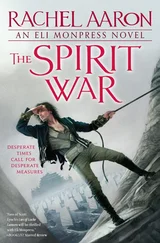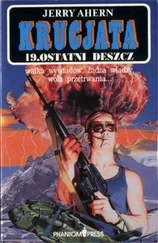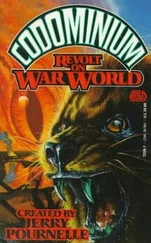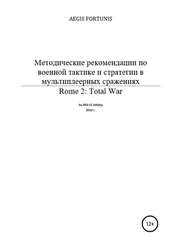Ahern, Jerry - Total War
Здесь есть возможность читать онлайн «Ahern, Jerry - Total War» весь текст электронной книги совершенно бесплатно (целиком полную версию без сокращений). В некоторых случаях можно слушать аудио, скачать через торрент в формате fb2 и присутствует краткое содержание. Жанр: Старинная литература, на английском языке. Описание произведения, (предисловие) а так же отзывы посетителей доступны на портале библиотеки ЛибКат.
- Название:Total War
- Автор:
- Жанр:
- Год:неизвестен
- ISBN:нет данных
- Рейтинг книги:4 / 5. Голосов: 1
-
Избранное:Добавить в избранное
- Отзывы:
-
Ваша оценка:
- 80
- 1
- 2
- 3
- 4
- 5
Total War: краткое содержание, описание и аннотация
Предлагаем к чтению аннотацию, описание, краткое содержание или предисловие (зависит от того, что написал сам автор книги «Total War»). Если вы не нашли необходимую информацию о книге — напишите в комментариях, мы постараемся отыскать её.
Total War — читать онлайн бесплатно полную книгу (весь текст) целиком
Ниже представлен текст книги, разбитый по страницам. Система сохранения места последней прочитанной страницы, позволяет с удобством читать онлайн бесплатно книгу «Total War», без необходимости каждый раз заново искать на чём Вы остановились. Поставьте закладку, и сможете в любой момент перейти на страницу, на которой закончили чтение.
Интервал:
Закладка:
"You talk too much," his sergeant said. The older man leaned against the fender of the nearest truck. "Ivan, I tell you the truth, the Americans may come and fight us. Some of our officers were speaking of this a few minutes ago."
"Good," Ivan said. "At least it would give me something to do instead of standing here, freezing, holding this damned rifle."
"I was sixteen and holding a rifle-with no bullets-at the siege of Stalingrad. Do not complain, young one," the sergeant said, his voice almost a whisper. "It was cold then, too, and I had holes in my boots. This night, I have bullets in my rifle and no holes in my boots. Things are better."
"Why are we here, Sergeant?" the soldier said, his voice trembling with the cold.
"We are Russians-that is why we are here. Tell me, Ivan Meliscovitch, do you and your brother who leads the easy life have a mother, or a sister?"
"Two sisters, Comrade Sergeant. Our mother is dead."
"Then you fight here for your sisters," the sergeant said. "Do not fight a war because you are trying to protect something you do not understand-politics, speeches. Fight to protect something you do understand and you will be stronger, fight harder. Hold on to life and be a brave man. I have three grandsons-younger than you. I fight for them. Years ago, I fought for my wife. But I cannot do that anymore." The sergeant's voice broke then, and he turned away and coughed.
The young soldier, Ivan, cleared his throat and started to speak. "Comrade Sergeant, I am sorry." The last word caught in his throat as a bright red flower of blood sparkled suddenly across the bridge of his nose and he crumpled back against the truck, the Kalashnikov pattern assault rifle failing from his gloved fingers.
The sergeant dropped flat down into the snow and rolled under the truck, glancing back and reaching out toward the dead boy-confirming that for himself-then slid under the belly of the truck, shouting, "We are under attack"'
There had been no sound of the shot. Was it a sniper with a silencer?
As the sergeant slid from under the truck, his long great coat was white with the snow. He scrambled to his feet. His knees ached with the cold. He ran in a low crouch toward the main body of his fellow soldiers. Already, as he ran, he heard sounds from the camps-shouts, rapidly barked commands, gunfire. "Fools!" the Sergeant thought. "Who are they shooting at?" He turned his head to glance back into the darkness from which the bullet that had killed Ivan Meliscovitch had come. The sergeant could see nothing.
He started to fall. As he went down he thought he had tripped on something in the snow, but when he tried to stand up, there was fire in his left ribcage. He touched his gloved right hand across his body to his coat, and his glove came back dark with blood. The sergeant pushed himself to his feet, lurched forward, two steps, then three, then fell again. A loud cry came from deep in his chest as his face pushed down against the wet snow "Natalia!" The sergeant closed his eyes.
The truck bounced hard on the rutted, snow-packed road. The sergeant looked at some of the men who were more seriously wounded than he was. He was well enough to sit instead of lying flat on his back on one of the stretchers. His side ached, his head swam a little from the morphine which the medic had given him. He leaned back, smoking a papyros. The tobacco tasted bad to him. It was too flat. His mind flashed back to some of the American soldiers he had met in Berlin, toward the end of the long war with the Nazis. He tried to remember the names of their cigarettes-they had tasted good. One had been called "Lucky" he believed. One kind that he remembered-he had liked its taste-had had a picture of a camel on the package. He had taken his grandsons to a zoological park once and shown them a camel, told them how he had smoked cigarettes with the picture of this animal on the packet.
He leaned back and drew the smoke from his papyros into his lungs and tried to imagine that it was an American cigarette instead. He looked out and saw the spot of ground where Comrade Private Ivan Meliscovitch had been shot by the Pakistani sniper-two men from the sergeant's own platoon had got the sniper an hour and three dead Russian soldiers later. As the sergeant closed his eyes, trying to forget the bumping of the truck, he wondered if Ivan Meliscovitch had ever smoked an American cigarette.
Chapter Ten
"I think it a perfectly charming idea, Mr. Ambassador," Mrs. Justin Colbert-Smythe effused. "Everyone had planned so long and hard for the charity dance-and with the Russians coming now...Well, heaven knows what the founding homes here will be forced to cope with."
"I'm so glad you approve, Madame," Ambassador Bruckner smiled. "Now, if you ladies"-and he smiled at the tight circle of aging matrons around him-"will allow me, I must confer with some of my associates in the library." He made a slight bow and started to walk away.
"About the world war that's coming-Daddy?"
Bruckner turned, seeing his nineteen-year-old daughter, Cheryl, at the edge of the group of older women, the young French intelligence attaché she had been seeing for the past six months now at her elbow, looking slightly uncomfortable.
"You're being an alarmist darling," Bruckner said, walking toward his daughter. She was the hostess for the evening. "Isn't she?" he said, turning toward her companion. "Isn't she being an alarmist, Charles?"
"As you say, Monsieur Ambassador-isn't she?" Bruckner glared at the younger man a moment, then leaned toward his daughter and touched his lips to her cheek. He did not like Charles Montand-the young man was not what Bruckner considered a good intelligence man. Talked too much, and then there was always the chance that Montand was seeing his daughter in order to spy on the American Embassy. Montand had started seeing her in earnest just after the embassy in Pakistan had become a listening post for the Soviet occupation on the neighboring Afghanistan border. A great deal of heavy U.S. intelligence was flowing in and out of the embassy. Cheryl, despite her age, and because her father was a widower, Bruckner thought bitterly, was in the same position of many ambassador's wives-she knew too much.
"I have to go, darling," Bruckner said, his tone brightening. "You see that this last dance here goes well, hmm? Remember, our plane leaves at six A.M." Then, turning to Momand, "I suppose we won't be seeing you again, Charles-at least not in the immediate future," he added, trying to mute the cheerfulness in his remark.
"Ahh, but you will, Monsieur Ambassador. I am being posted to our embassy in Washington. A promotion."
"Ohh," Bruckner said, forcing a smile.
"Oui. I knew that this would be pleasing to you. With your lovely daughter's permission, I can go right on seeing her." Montand lit a cigarette from a small silver case and Bruckner smiled again-he hated men who carried cigarette cases.
"Well," Bruckner said, edging away from his daughter and the French intelligence man, "on such good news, how can the two of you bear standing here talking with an old man like me? You should be out celebrating."
"Celebrating, Daddy?" his daughter whispered, looking down into the champagne glass she held in both hands.
Bruckner looked at the pale blonde hair, the hint of blue eyes under her long lashes, the delicate bones of her face, the tiny but determined chin. It was as if his wife had been reborn in his daughter. Bruckner's wife had died at the moment of Cheryl's birth.
"You're so much like your mother," Bruckner whispered, dismissing the young Frenchman beside his daughter from his mind. "Even to her stubbornness." Bruckner kissed her on the cheek again and walked away.
As he moved along the corridor toward the library, he glanced through one of the picture windows and across the darkened lawns and beyond to the other side of the dark bulk of wrought iron fence separating American embassy territory from Pakistan. There were vans and cars on the other side, and he could see lights for news cameras. The reporters had been there for twelve hours, ever since the United States and several of her allies had announced the intention of leaving the Pakistani capital. Official business was being left in the hands of the redoubtable Swiss. Almost bitterly. Bruckner realized he would be forced to say something to the reporters either when he left in six hours, or else at the airport.
Читать дальшеИнтервал:
Закладка:
Похожие книги на «Total War»
Представляем Вашему вниманию похожие книги на «Total War» списком для выбора. Мы отобрали схожую по названию и смыслу литературу в надежде предоставить читателям больше вариантов отыскать новые, интересные, ещё непрочитанные произведения.
Обсуждение, отзывы о книге «Total War» и просто собственные мнения читателей. Оставьте ваши комментарии, напишите, что Вы думаете о произведении, его смысле или главных героях. Укажите что конкретно понравилось, а что нет, и почему Вы так считаете.








